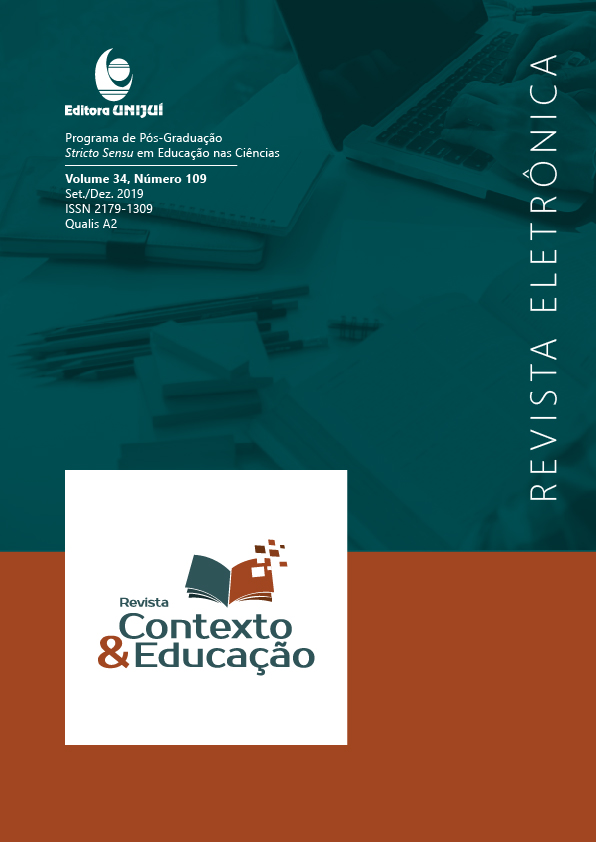LIMITES E POTENCIALIDADES DE MATERIALIZAÇÃO DO CURRÍCULO INTEGRADO: UMA ANÁLISE DOS PLANOS DE ENSINO E DIÁRIOS DE CLASSE
DOI:
https://doi.org/10.21527/2179-1309.2019.109.104-120Resumo
O presente artigo tem por objetivo identificar e compreender os limites e potencialidades de materialização da integração curricular no cotidiano dos cursos técnicos integrados nos cursos Técnico em Informática Integrado ao Ensino Médio, Câmpus Chapecó e Técnico em Agroindústria Integrado ao Ensino Médio, Câmpus São Miguel do Oeste, ambos ofertados pelo Instituto Federal de Educação, Ciência e Tecnologia de Santa Catarina – IFSC. O foco da análise foram treze Planos de Ensino e dez Diários de Classe dos componentes curriculares Oficina de Integração e Projeto Integrador, do primeiro e segundo semestres de 2015. Os resultados da análise mostram a complexidade do trabalho pedagógico no contexto do currículo integrado e apontam diferentes formas de materialização da integração nas Oficinas de Integração e nos Projetos Integradores. De forma geral, os Planos de Ensino e Diários de Classe apresentam-se preponderantemente como instrumentos jurídicos e formais, não se configurando como instrumentos de planejamento coletivo e de síntese das ações e finalidades propostas. Por outro lado, as análises realizadas também revelam as intencionalidades, as potencialidades e a materialidade das experiências com os Projetos Integradores e as Oficinas de Integração nos cursos pesquisados.
Palavras-Chave: Currículo Integrado, Planos de Ensino, Diário de Classe.
Downloads
Publicado
Como Citar
Edição
Seção
Licença
Ao publicar na Revista Contexto & Educação, os autores concordam com os seguintes termos:
Os trabalhos seguem a licença Creative Commons Atribuição 4.0 Internacional (CC BY 4.0), que permite:
Compartilhar — copiar e redistribuir o material em qualquer meio ou formato;
Adaptar — remixar, transformar e criar a partir do material para qualquer fim, inclusive comercial.
Essas permissões são irrevogáveis, desde que respeitados os seguintes termos:
Atribuição — os autores devem ser devidamente creditados, com link para a licença e indicação de eventuais alterações realizadas.
Sem restrições adicionais — não podem ser aplicadas condições legais ou tecnológicas que restrinjam o uso permitido pela licença.
Avisos:
A licença não se aplica a elementos em domínio público ou cobertos por exceções legais.
A licença não garante todos os direitos necessários para usos específicos (ex.: direitos de imagem, privacidade ou morais).
A revista não se responsabiliza pelas opiniões expressas nos artigos, que são de exclusiva responsabilidade dos autores. O Editor, com o apoio do Comitê Editorial, reserva-se o direito de sugerir ou solicitar modificações quando necessário.
Somente serão aceitos artigos científicos originais, com resultados de pesquisas de interesse que não tenham sido publicados nem submetidos simultaneamente a outro periódico com o mesmo objetivo.
A menção a marcas comerciais ou produtos específicos destina-se apenas à identificação, sem qualquer vínculo promocional por parte dos autores ou da revista.
Contrato de Licença (para artigos publicados a partir de outubro/2025): Os autores mantém os direitos autorais sobre seu artigo, e concedem a Revista Contexto & Educação o direito de primeira publicação.


